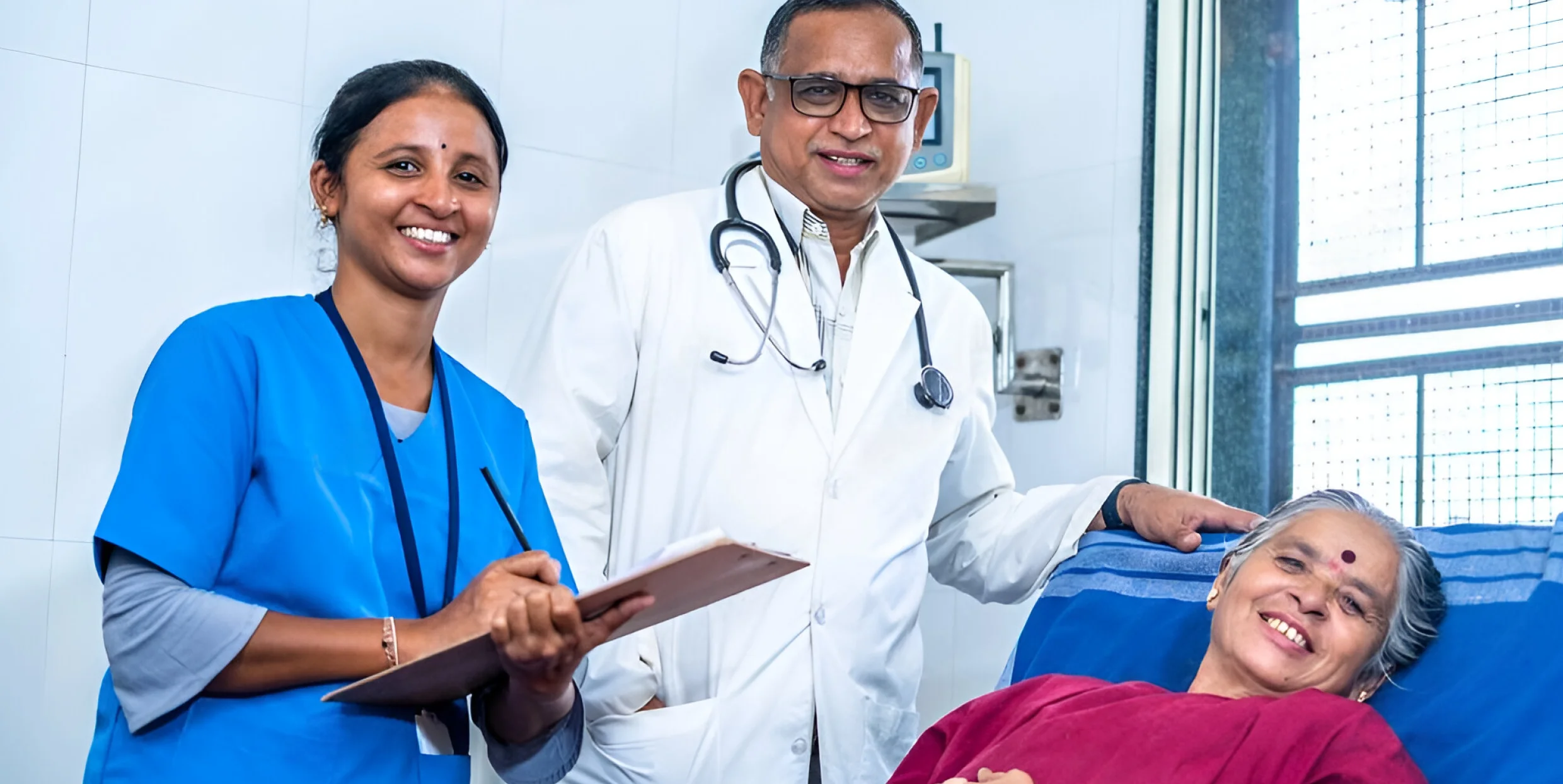
Welcome to Bhagwan Mahaveer Cancer Hospital & Research Centre (BMCHRC), a beacon of hope and healing for individuals confronting Head & Neck Cancer. Our institution stands as a pillar of comprehensive care, where cutting-edge treatments merge with compassionate support to guide patients towards optimal health outcomes.
Welcome to Bhagwan Mahaveer Cancer Hospital & Research Centre (BMCHRC), a beacon of hope and healing for individuals confronting head and neck cancer. Our institution stands as a pillar of comprehensive care, where cutting-edge treatments merge with compassionate support to guide patients towards optimal health outcomes.

Head and Neck Cancers encompass a diverse group of malignancies affecting various structures, including the oral cavity, throat, larynx, sinuses, nose, and salivary glands. These cancers can significantly impact vital functions like swallowing, speech, and breathing, underscoring the urgency of timely diagnosis and tailored treatment strategies.

At BMCHRC, we embrace a holistic approach to head and neck cancer treatment, recognizing that each patient's journey is unique. Our multidisciplinary team, comprising oncologists, surgeons, radiation therapists, and support staff, collaborates seamlessly to craft personalized treatment plans tailored to individual needs, ensuring comprehensive care at every turn.

Driven by a commitment to excellence, BMCHRC boasts state-of-the-art facilities and technology, empowering our team to deliver the highest standard of care. From advanced imaging modalities facilitating precise diagnosis to innovative surgical techniques and targeted therapies, we leverage cutting-edge tools to combat head and neck cancer with unparalleled precision.

Our experienced healthcare team is dedicated to helping patients manage the symptoms and side effects of cancer treatment. Whether it's pain, nausea, fatigue, or other treatment-related issues, we work closely with patients to develop personalized strategies for symptom relief, enhancing comfort and promoting well-being.

In addition to traditional medical treatments, we offer access to a range of integrative therapies designed to enhance healing and promote overall well-being. From acupuncture and massage therapy to meditation and yoga, these complementary approaches can help alleviate stress, reduce pain, and improve quality of life during and after cancer treatment. Our team collaborates closely with patients to integrate these therapies into their care plans, providing comprehensive support for mind, body, and spirit.

At BMCHRC, we believe in empowering patients through education and active participation in their care journey. Our comprehensive patient education programs equip individuals with the knowledge and resources needed to make informed decisions about their treatment, fostering a sense of empowerment and partnership in the healing process.

Driven by a commitment to advancing the frontiers of cancer care, BMCHRC actively engages in pioneering research and clinical trials. Through our participation in cutting-edge research initiatives, we strive to introduce novel therapies, enhance treatment efficacy, and ultimately improve outcomes for individuals battling head and neck cancer.
Meet our esteemed team of medical professionals, each equipped with years of specialized expertise and unwavering dedication to patient care.
Request a callback from our healthcare specialist
Common symptoms may include persistent sore throat, difficulty swallowing, changes in voice or hoarseness, a lump or mass in the neck, ear pain, and unexplained weight loss. However, symptoms can vary depending on the location and stage of the cancer.
Diagnosis often involves a combination of physical examination, imaging tests (such as CT scans, MRI, or PET scans), and biopsy to confirm the presence of cancer cells.
Treatment options may include surgery, radiation therapy, chemotherapy, targeted therapy, immunotherapy, or a combination of these modalities. The choice of treatment depends on factors such as the type, stage, and location of the cancer, as well as the patient's overall health and preferences.
Hair loss is not a common side effect of all head and neck cancer treatments. However, certain chemotherapy regimens may cause hair thinning or loss. Your healthcare team can provide more information about the potential side effects of your specific treatment plan.
The duration of treatment varies depending on factors such as cancer stage, treatment modalities used, and individual response to therapy. Treatment may range from several weeks to several months, and may involve a combination of surgery, radiation, and/or chemotherapy.
Side effects can vary depending on the type of treatment received. Common side effects may include fatigue, nausea, mucositis (mouth sores), difficulty swallowing, and changes in taste or smell. Your healthcare team will work closely with you to manage side effects through medications, supportive care measures, and lifestyle adjustments.
Whether or not you can continue working during treatment depends on several factors, including the type of treatment, its side effects, and the demands of your job. Some patients are able to work part-time or remotely, while others may need to take time off to focus on treatment and recovery. Your healthcare team can provide guidance based on your individual circumstances.
Yes, many cancer centers offer support services for caregivers and family members, including counseling, support groups, educational resources, and assistance with practical matters such as transportation and lodging. These services are designed to help caregivers cope with the challenges of supporting a loved one through cancer treatment.
Nutrition plays a crucial role in supporting overall health and well-being during cancer treatment. A balanced diet rich in nutrients can help maintain strength, manage side effects, and support the body's healing process. Your healthcare team may recommend dietary adjustments or nutritional supplements to meet your specific needs during treatment.
Follow-up appointments are essential for monitoring your progress, assessing treatment response, and detecting any signs of recurrence or complications. The frequency of follow-up appointments may vary depending on individual factors and the specifics of your treatment plan. Your healthcare team will provide guidance on the recommended follow-up schedule for your particular situation.